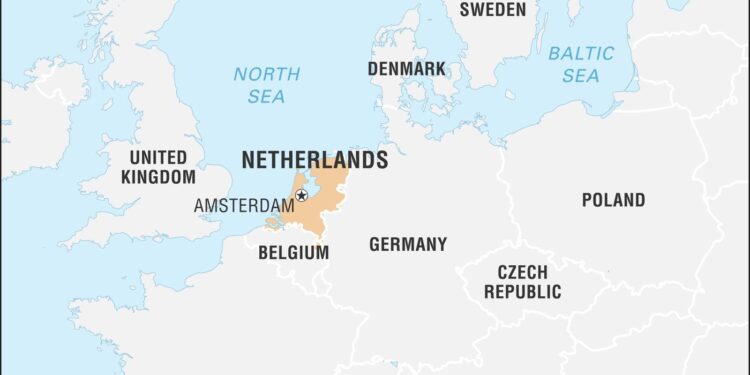The Netherlands has officially repealed a controversial law that permitted minors to legally change their gender without requiring parental consent or extensive medical evaluation. The decision, announced this week, follows mounting public debate and political pressure surrounding the rights of children and the complexities of gender identity. Advocates and critics alike have voiced strong opinions on the matter, framing the repeal as a significant shift in the country’s approach to transgender rights. This development marks a pivotal moment in the ongoing European discourse over gender self-identification and the balance between individual autonomy and protective oversight.
Netherlands Reverses Policy on Minors Gender Transition Amid Public Debate
In a significant policy shift, the Dutch government has officially withdrawn its earlier legislation that permitted minors to legally change their gender without stringent age or consent requirements. This reversal follows months of intense public debate and scrutiny from medical experts, parents, and advocacy groups concerned about the potential psychological and medical risks associated with early gender transition interventions for youths. Critics argued that the previous policy lacked comprehensive safeguards and overlooked the capacity of minors to make such profound decisions about their identities.
The newly adopted framework emphasizes enhanced psychological evaluations and requires minors to undergo thorough counseling with multidisciplinary teams before any medical or legal gender transition steps are approved. Key elements of the revised approach include:
- Mandatory waiting periods to ensure informed decision-making
- Parental or guardian involvement in the process
- Age thresholds for different stages of medical intervention
- Comprehensive mental health support systems tailored to individual needs
| Previous Policy | Revised Policy |
|---|---|
| Minimal age restrictions | Strict age thresholds enforced |
| Limited parental involvement | Required parental or guardian consent |
| Quick legal gender change process | Extended waiting and evaluation periods |
| Single-discipline evaluations | Multidisciplinary psychological and medical assessments |
Analyzing the Legal and Social Implications of Scrapping the Gender Change Law
The decision to repeal the law permitting minors to change their gender in the Netherlands has sparked intense debate on both legal and societal fronts. Legally, critics argue that the repeal may infringe on the rights of transgender youth, potentially delaying access to essential healthcare and support services. Proponents of the repeal, however, emphasize the need for greater safeguards and parental involvement when minors consider such life-altering decisions. This legislative shift underscores a tension between protecting children from irreversible medical interventions and respecting their gender identity and autonomy.
- Legal considerations: The role of parental consent, requirements for psychological evaluation, and age thresholds
- Social implications: Potential rise in mental health challenges, community support systems, and public perception of transgender issues
- Impact on healthcare providers: New guidelines and ethical dilemmas facing medical professionals who work with transgender minors
| Aspect | Before Repeal | After Repeal |
|---|---|---|
| Minimum Age for Gender Change | Under 16 with parental consent | Postponed until adulthood or stricter evaluation |
| Parental Role | Consent Required | More Legal Authority and Oversight |
| Access to Medical Treatments | Available Upon Diagnosis | Restricted Pending New Protocols |
Socially, the repeal has polarized communities, with activists warning of increased stigmatization and harm to transgender youth. Meanwhile, some parents and advocacy groups argue the change fosters responsible decision-making and protects minors from premature choices. Schools, mental health professionals, and policymakers now face the challenge of balancing these competing interests while supporting vulnerable young populations.
Recommendations for Balancing Youth Rights and Parental Guidance in Gender Identity Cases
Striking a delicate balance between safeguarding youth rights and respecting parental guidance is essential in cases involving gender identity. Comprehensive dialogue among healthcare professionals, legislators, parents, and the affected minors themselves must be prioritized to create policies that protect both autonomy and well-being. Incorporating psychological evaluations alongside parental input can help ensure that decisions are made with a full understanding of the minor’s mental and emotional state, preventing rushed or irreversible outcomes.
Policy frameworks should include:
- Mandatory counseling sessions tailored for minors and parents to foster mutual understanding.
- Clear guidelines outlining the age and conditions under which gender-affirming interventions are considered appropriate.
- Regular review panels involving multidisciplinary teams to evaluate ongoing cases discreetly and sensitively.
| Stakeholder | Role | Focus Area |
|---|---|---|
| Youth | Express identity & preferences | Well-being & autonomy |
| Parents | Provide guidance & support | Emotional stability |
| Healthcare Providers | Assess & counsel | Medical & psychological safety |
| Legislators | Create laws & safeguards | Balanced policy |
In Summary
The Dutch government’s decision to repeal the controversial law permitting minors to change their gender marks a significant shift in the ongoing debate over gender identity rights in Europe. As the conversation continues to evolve, policymakers and advocates on all sides will be closely watching how this move influences similar legislation across the continent. The Netherlands’ reversal highlights the complexities surrounding youth autonomy, medical ethics, and societal values, underscoring the challenges nations face in balancing individual rights with public concern.
















